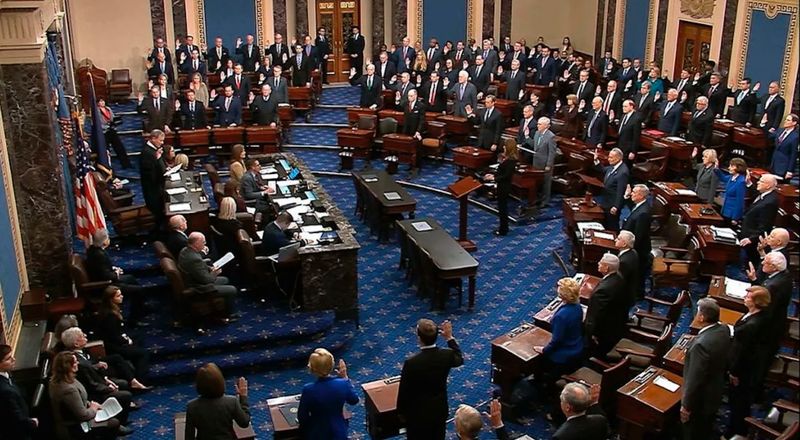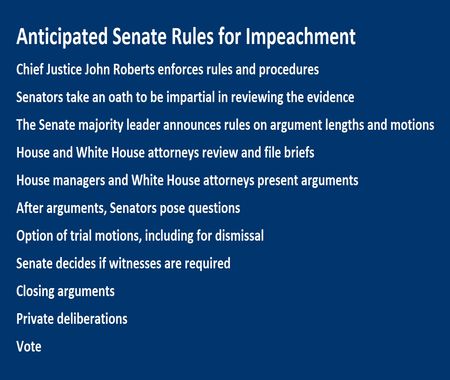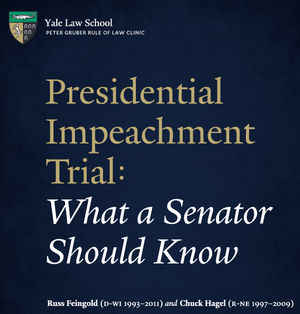Unknowns of Trump Impeachment: Bloomberg
Unknowns of Trump Impeachment: Bloomberg
 Read the essay from Bloomberg about the political perils of surprises in the Trump impeachment trial.
Read the essay from Bloomberg about the political perils of surprises in the Trump impeachment trial.
Jonathan Bernstein is a Bloomberg Opinion columnist covering politics and policy.
Also, read:
- A report on Russians accused of hacking Burisma, the Ukrainian gas company, from the New York Times.
- Documents of Lev Parnas, who worked with Trump personal attorney Rudy Giuliani, released by the US House of Representatives and provided by CNN.
- A report from the National Review on Ukraine announcing an investigation into surveillance of Marie Yovanovitch, former US ambassador to Ukraine, targeted by Trump associates, including a Republican candidate for Congress and Trump donor.
- A report from the Washington Post about a Government Accountability Office finding that “the Trump administration broke a law that governs how the White House disburses money approved by Congress by withholding $214 million worth of equipment, training, and other support to help Ukraine in its battle against Russian-backed separatist forces.”

(Source: Politico)

The Peter Gruber Rule of Law Clinic at Yale Law School published a memo on impeachment by former US senators Russ Feingold and Chuck Hagel: “Presidential Impeachment Trial: What Every Senator Should Know.” The memorandum provides guidance on Senate rules and senators’ obligations during the trial, reports Yale Law School.
The memo also notes: “While a Senate majority could invoke the procedural tactics of adjournment or a motion to dismiss to cut short trial proceedings, it would be inconsistent with both Senate precedent and constitutional duty for senators to cut an impeachment trial short.”